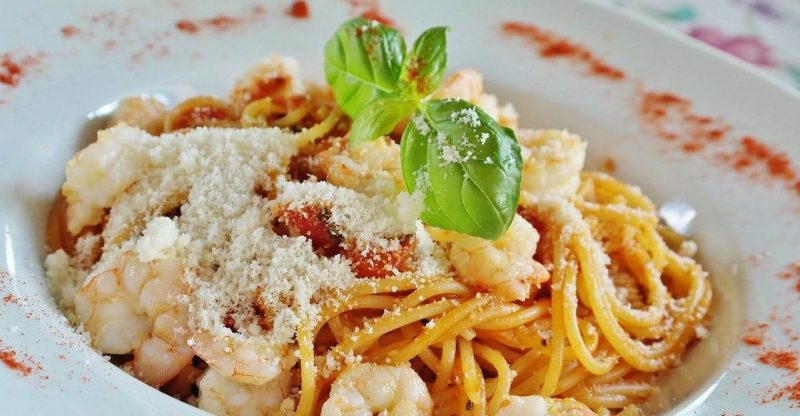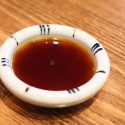What is Hydrolyzed Corn Protein and its Uses in Food?

Overview | Uses | Safety | Side effects | FAQs
Hydrolyzed corn protein, a protein hydrolysate used as a flavor enhancer in food. Along with hydrolyzed soy protein, they’re both the common used hydrolyzed vegetable protein (HVP) and usually used together in a compound form. You might have seen it in the food label and wondered what is this ingredient and what it is used for. Let’s clear this up.
What is Hydrolyzed Corn Protein?
Definition
According to the Commission of European Union, protein hydrolyzates corn is obtained by acidic, alkaline, or enzymatic hydrolysis of zea mays (maize or corn) composed primarily of amino acids, peptides, and proteins. It may contain the main impurities: carbohydrates and lipids. (1)
What is Hydrolyzed Corn Protein Used For?
It is used worldwide for flavoring meat products, mostly combined with hydrolyzed soy protein. Its purpose is as a flavor enhancer which provides umami taste in processed foods like soups, chilis, sauces, meat products, gravies, spice mixtures, side dishes and frozen meals.
What is Corn Protein?
Corn or maize is mainly used for the production of:
- Corn Starch
- Modified Starch
- Sugar Alcohol
- Alcohol
Corn protein is generated as a by-product during the manufacturing process of corn starch.
What is Corn Protein made of?
Corn protein granular or powder has a yellow appearance. It has a special odor similar to that produced by corn fermentation. It has high hardness, low moisture content, and is difficult to dissolve in water.
Corn protein generally contains:
- Protein 50 to 70%, generally consists of:
- Zein 70%: Zein is the main protein, which takes around 70% of total protein. It can be dissolved in 70 ~ 80% ethanol. Zein protein contains hydrophobic amino acids such as leucine, isoleucine, alanine, and valine, but lack of essential amino acids, such as lysine and such as tryptophan.
- Glutdin 20%
- Globulins and albumin 10%
- Starch 20 %
- Cellulose 13%
- Zeaxanthin
- Vitamins
- A variety of inorganic salts
What does “Hydrolyzed” mean?
From the description, we can know that hydrolyzed corn protein is a hydrolyzed product. The peptide bonds in long protein strands break down to smaller chains or free amino acids.
Smaller protein molecules or free amino acids are easy to absorb in our body. It is beneficial to people with malabsorption disorders
How to make Hydrolyzed Corn Protein?
The manufacturing process is hydrolysis maize protein by acid, enzyme or alkali.
Generally, the acid method is the main process utilized. Hydrochloric acid is added to the plant protein to hydrolyze it. After neutralization, it is decolorized, deodorized, filtered and concentrated to form a slurry or make it a powered form through the spray-dried method.
EFSA also mentioned a brief production process through acid hydrolysis. Manufacturing includes acid hydrolysis (6-8 hours, temperature 110-140oC, maximum pressure 4 bar), neutralization, filtration and ripening. (2)
What is Hydrolyzed Corn Protein made of?
It is a mixture of amino acids, along with peptides, and proteins. The final hydrolyzed products depend on the manufacturing process and the degree.
The following are the free amino acids that may in it:
- Alanine
- Arginine
- Aspartic Acid
- Cysteine
- Glutamic Acid
- Glycine
- Histidine
- Isoleucine
- Leucine
- Lysine
- Methionine
- Phenylalanine
- Proline
- Serine
- Threonine
- Tryptophan
- Tyrosine
- Valine
Specification
Appearance
A clear amber solution to light yellow powder with a characteristic odour.
Other Names
- Hydrolyzed Vegetable Protein
- Textured Vegetable Protein
- HVP, TVP
CAS Number
100209-41-4
What are the Uses of Hydrolyzed Corn Protein?
It is used widely as a flavour enhancer to give meat-like flavour in processed savory food products and pre-prepared meals. Common levels in foods range from 0.1 to 20%.
Food
Its function and benefits in food:
- Natural and safe
- Good solubility and are vegetarian
- Stable to heat
- A substitute for MSG
The Following food may contain with it:
Bakery
Biscuits, Cakes, Puffed food, Pizza base and so on.
Fermented Food
Vinegar, dairy products
Processed Food
Canned meat, Canned fish and Canned vegetables
Snack Food
Fast-food, pickles, savoury snacks or pies, noodles, seasoning mixtures, soups, sauces, instant snacks
Cosmetics
Per the “European Commission database for information on cosmetic substances and ingredients”, it can function as an antistatic, hair conditioning and skin conditioning in cosmetic and personal care products. (3)
Is Hydrolyzed Corn Protein safe to eat?
Yes, plant protein products are approved food additives by the FDA 21CFR§170.3. Also, it complies with the definition of Vegetable Protein Products (VPP) by JECFA (Joint FAO/WHO Expert Committee on Food Additives). (4)
What are the possible Health Risks?
It is common that sometimes consumers have questions whether it is bad for our health and what are the side effects. As it may contain MSG, so MSG-intolerant people should avoid it.
[Related: MSG Side Effects: Headache, dermatitis, nausea and so on.]
Frequently Asked Questions
Is It Natural?
Yes, it is a natural flavor enhancer instead of an artificial flavor as it meets the FDA’s definition of natural flavor or natural flavoring. (5)
Is it Halal?
Yes, it is halal complies with the policy of Muslim.
Is it Kosher?
Yes, it is kosher pareve. It has met all the “kashruth” requirements and can be certified as kosher.
Is it Gluten free?
Yes, it is gluten free according to FDA that it does not contain wheat, rye, barley, or crossbreeds of these grains.
Is It Vegan?
Yes, it is vegan. Raw materials and the manufacturing process without the use of animal based products. It is appropriate for vegetarians.
Does Hydrolyzed Corn Protein contain MSG?
As it has naturally occurring glutamic acid and may contain 10%-30% MSG. (6)
Is Hydrolyzed Corn Protein A Trans Fat?
No.
Conclusion
Now you may have a knowledge of the flavor enhancer – Hydrolyzed corn protein, from the following aspects:
- Composition
- Manufacturing processes
- Uses in food
- Differences with corn protein
- Safety
- FAQs: is it natural, vegan and so on.
What do you think of this additive and what kinds of food labels have you found it in? Let me know in the comments.



Corn allergy is fairly common. As someone who is allergic to corn, I constantly read labels because it is in most prepared foods. I usually avoid prepared foods for that reason.
Wondering I have a sensitivity to msg, should I stay away from this as well. Thanks
VERY HELPFUL!
Thanks so much for providing this information – & in such a clear manner.
Thank you for this very informative and easy to understand article.